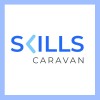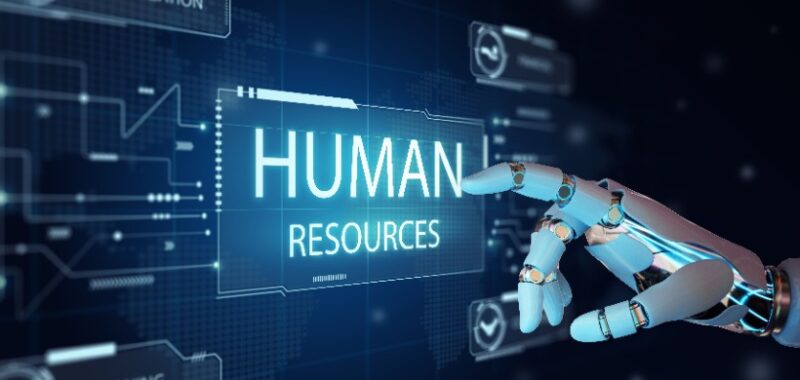How Human Resources Departments Can Leverage Artificial Intelligence
Considering the advancements in technology at present, there arises a pertinent question of whether AI would replace human roles in most sectors, including HR. From this perspective, this article is an effort to discuss the effects of AI on HR—its benefits, its limitations, and changes for the future.
The Role Of Generative AI In HR
The functions of HR—recruitment, onboarding, training, and performance management—operate in unison and in conjunction with several internal processes for the purpose of addressing intricate challenges. Traditionally, they were considered to be separate functions, but the prominence given by systemic HR has culminated in a more integrated form.
Organizations today already face high turnover rates coupled with workforce stress and great demand for the reskilling of employees. The most critical Human Resource priorities of today include diversity, employee experience, and internal efficiency. Data management is still pretty fragmented, especially in large organizations that use many systems to store critical information about employees.
As HR teams introduce new programs, it leaves an overworked labor force to carry the burden. Only 13% of employees are reported to state that they are below full capacity. Processes need to be streamlined and administrative burdens minimized so that workforces concentrate on their core jobs. There can be huge assistance in this regard from AI.
Next, the role of HR professionals is evolving to that of creators and consultants rather than just supporters. Research shows that there has been an evolution from supporter positions to positions of responsibility dedicated to product management and analysis. Functions assigned to HR are matched with new roles for generating and evaluating HR solutions.
Practical Applications
Several high-return use cases for AI in HR have emerged:
- Talent intelligence
These platforms help organizations analyze employee skills for promotions while addressing pay equity. - Employee experience applications
Intelligent chatbots streamline onboarding and administrative tasks by integrating with existing HR systems. - Training and compliance tools
The $350 billion employee training sector increasingly uses AI to create engaging training materials and personalized learning experiences. - Career development platforms
AI assists in crafting personalized career pathways based on employees’ skills and experiences. - Performance management
While not replacing performance reviews, AI can identify underperformance by analyzing team dynamics. - Retention and engagement analysis
AI provides insights into factors affecting employee turnover and engagement beyond traditional surveys.
Getting Started With AI In HR
To implement AI effectively, organizations should identify specific challenges to address, like improving onboarding or enhancing self-service capabilities with the help of an LMS, and involve IT from the start to tackle data management and security issues. Ongoing maintenance of AI systems is crucial for ensuring accuracy and user-friendliness.
As HR professionals adapt to these changes, their roles will increasingly focus on analysis, training AI systems, and managing product development, thereby enhancing their strategic contributions to the organization.
What The Future Holds
AI holds transformative potential for HR by streamlining administrative tasks and improving talent development and employee engagement. Potential future trends include:
- Predictive analytics
Enables proactive workforce planning by identifying future needs. - Virtual HR assistants
Automate administrative tasks like scheduling. - Chatbots
Provide immediate support for common HR inquiries.
By leveraging these capabilities, HR professionals can enhance operations and make informed decisions while managing expectations regarding AI’s implementation.
Will AI In HR Replace Humans?
It is, in fact, the role of AI in HR to supplement human capability rather than replace it entirely. With routine tasks being automated and going data-driven, it is human judgment that’s called upon to deal with much more complex interpersonal issues. Its coupling with human expertise is where the machine truly excels at improving the processes of resume screening and candidate matching. No algorithm will ever understand organizational culture like a human professional, and it is for this reason that they are critical in evaluating cultural fit and potential for growth.
However, human monitoring will be necessary for AI systems to run well and ethically. HR leaders must monitor for bias or error in addition to providing support regarding how AI will affect their work.
In a nutshell, AI functions are efficiency maximizers, not human replacements. A synergistic deployment of AI technologies with human expertise will move HR to a strategic and data-driven domain that drives business performance.
Should We Be Worried?
The concern for the increasing availability of AI in HR is valid but should only be viewed through the perspective of one who is open to change. In fact, history has shown that many notions driven by fear of technology become acceptable once the positive side of the latter catches up.
Instead, there should be a welcome of its presence to operationalize streamlined processes through reductions in mundane work. This should free more time for critical moments of HR employees’ jobs—supporting employees at their moment of need. The implementation potential of AI in HR should be studied, especially by organizations that would consider implementing it.
Conclusion
While it remains uncertain whether AI will fully take over the HR department, its capacity to enhance human skills and optimize workflows is evident. Embracing AI thoughtfully ensures it complements rather than replaces the human workforce. All stakeholders, HR professionals, leaders, and employees stand to benefit from integrating AI into their practices while recognizing that human contributions will always hold intrinsic value.

Skills Caravan
Skills Caravan multi-product Learning Experience Platform, Content Library, Engagement platform, Credentialing and Impact reporting we automate and integrate the Learning and Development process.

